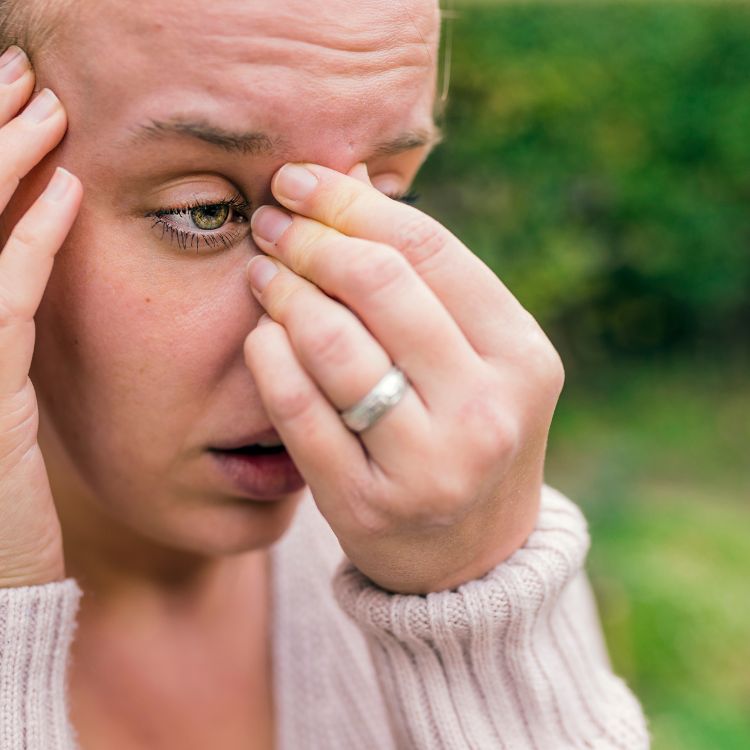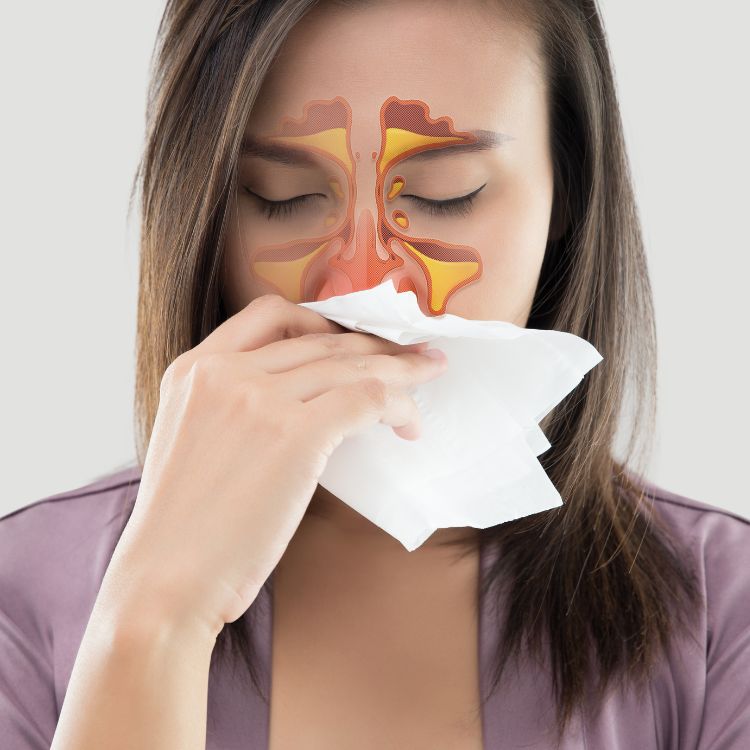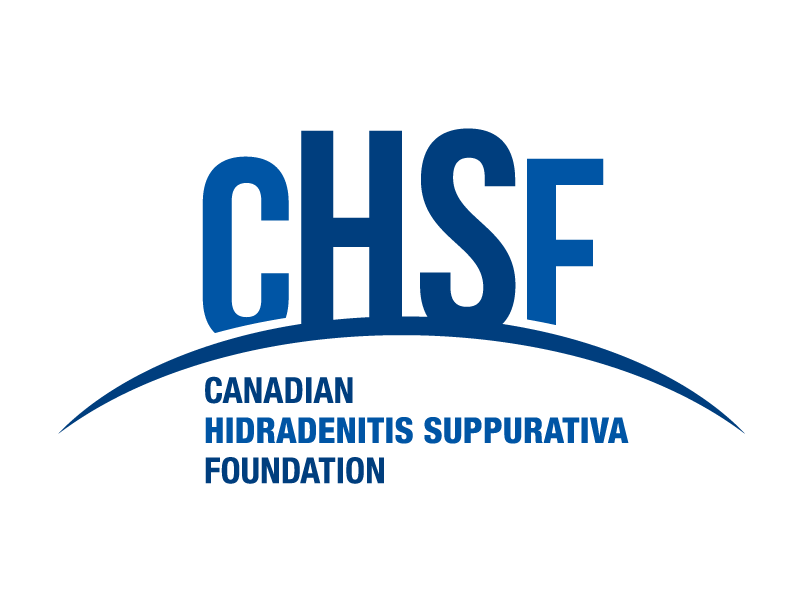Definition of hidradenitis suppurativa (HS)
Hidradenitis suppurativa (HS) is a chronic, inflammatory skin condition that affects the sweat glands in the body. It typically appears as red or purple bumps that can become filled with pus and form draining sinuses. HS can cause pain, itching, and embarrassment due to its unsightly appearance. It usually occurs in areas where skin rubs against skin such as the armpits, groin, buttocks, and breasts.
The exact cause of hidradenitis suppurativa is unknown but it is believed to be related to factors such as genetics and hormones. Other possible causes include poor hygiene, tight clothing, cigarette smoking, obesity, and stress. Treatment for HS includes antibiotics for infection management, corticosteroid injections for inflammation reduction, topical treatments such as retinoids and topical antibacterials to prevent new lesions from forming. In more severe cases surgery may be required to remove large cysts or sinuses that are unresponsive to other treatments.
HS can be an embarrassing condition but there is help available through support groups or online forums which can provide emotional comfort and advice on managing symptoms of this condition.
Overview of HS & associated symptoms
Hidradenitis Suppurativa (HS) is a chronic skin condition that affects the sweat glands. It’s characterized by red or purple bumps, pus-filled cysts, and draining sinuses. HS can cause pain, itching, and embarrassment due to its unsightly appearance. Common areas affected include armpits, groin, buttocks, and breasts.
The exact cause of HS is unknown but there are potential contributing factors such as genetics, hormones, poor hygiene, tight clothing, cigarette smoking, obesity and stress. Symptoms vary from person to person but generally involve red or purple bumps that may be tender and painful to touch when first forming. Over time these bumps can become larger and filled with pus which often leaks out of a small opening in the skin and forms a tunnel-like sinus. Other associated symptoms include fever, lethargy, weight loss and fatigue.
Fortunately there is help available through support groups or online forums which can provide emotional comfort and advice on managing symptoms of this condition. With proper treatment HS can be managed effectively so if you think you may have this condition it’s important to speak with your doctor right away for an accurate diagnosis and a personalized treatment plan.
Prevalence and risk factors for HS
Hidradenitis Suppurativa (HS) is a chronic skin condition that affects about 4% of the population, with women being more likely to experience it than men. It can also be hereditary, and if you have a close family member with HS, you may be at an increased risk. Certain factors such as obesity, smoking and stress can increase your risk of developing HS, so it’s important to take steps to maintain a healthy lifestyle. Hormonal changes during puberty or pregnancy can also increase your risk for this condition.
Although it’s not curable, there are treatments available to help manage symptoms and reduce flare-ups. This includes topical medications and antibiotics to reduce inflammation, as well as lifestyle changes such as avoiding tight clothing and maintaining proper hygiene. Additionally, support groups or online forums can provide emotional comfort while offering advice on managing symptoms of HS. If you think you may have this condition it’s important to speak with your doctor right away for an accurate diagnosis and a personalized treatment plan.

Clinical Features of HS
Hidradenitis Suppurativa (HS) can often be difficult to diagnose as its symptoms are similar to other skin conditions. It is characterized by painful, deep-seated lumps or nodules which may break open and form tunnels under the skin. Other common clinical features include redness, swelling and discharge from the affected areas. As HS is a long-term condition, it’s important to recognize that flare-ups can occur at any time. While the cause of HS remains unknown, it is believed that hormones, genetics and lifestyle factors all play a role in its development.
If you think you may have HS, talk to your doctor about your symptoms so they can accurately diagnose and recommend appropriate treatments. There are many different treatment options available including topical medications, antibiotics, surgery and lifestyle changes such as avoiding tight clothing and maintaining proper hygiene. With the right approach, it is possible to reduce discomfort and improve quality of life with HS.
Apocrine sweat glands and sinus tract formation
Apocrine sweat glands are a special type of sweat gland found in areas such as the armpits, groin and buttocks. These types of glands produce thicker sweat that contains fat and proteins. In people with HS, these sweat glands become blocked, leading to inflammation. This inflammation can further cause bacterial growth in the blocked area which may lead to sinus tract formation. Sinus tracts are tunnels or channels that form under the skin and connect affected areas together. They can be painful and can rupture at times, causing drainage of pus-filled material onto the skin surface.
If you’re experiencing symptoms of HS such as redness, swelling and discharge from affected areas, make sure to talk to your doctor about it. With prompt diagnosis and treatment, it is possible to reduce discomfort and improve quality of life with HS.
Inflammatory responses in HS patients
In people with HS, the sweat glands become blocked and inflamed, leading to an inflammatory response from the body. This inflammation causes pain, redness and swelling in the affected area. In more severe cases, this inflammation can cause pus-filled abscesses to form. These abscesses are painful and can rupture, causing drainage onto the skin surface.
The body’s inflammatory response to HS is also thought to be linked to other associated symptoms such as fatigue and fever. It’s important for anyone experiencing symptoms of HS to talk to their doctor about it right away so that they can receive prompt diagnosis and treatment. With proper management, it is possible to reduce discomfort and improve quality of life with HS.
Varied presentations and severity of HS cases
Hidradenitis suppurativa (HS) is a chronic skin condition that causes inflammation of the sweat glands and can affect any area of the body where there are sweat glands. It can present with a variety of symptoms, including pain, redness and swelling in the affected area. In more severe cases, abscesses form which may rupture and cause drainage onto the skin surface.
HS affects people differently, with some experiencing mild symptoms while others have more severe forms. People with mild HS may notice small bumps or pimples on their skin or recurrent boils that heal without scarring. Those with moderate to severe forms of HS may experience larger abscesses, multiple lesions and scarring from ruptured abscesses.
Regardless of severity, it’s important to seek medical attention if you think you may have HS so that proper management can be implemented to reduce discomfort and improve quality of life. With the right treatment plan for your particular case, many people are able to achieve long-term symptom relief from their HS.

Quality of Life with HS
Living with hidradenitis suppurativa (HS) can be difficult and have a significant impact on your quality of life. Symptoms such as pain, redness and swelling can limit activities that you once may have enjoyed in the past. And due to the chronic nature of this condition, it’s important to seek medical attention so that you can get the best possible treatment plan for your particular case.
Fortunately, with the right treatment plan, many people are able to experience long-term symptom relief from their HS. This includes treatments such as topical medications, oral antibiotics and even surgery in more severe cases. In addition to these treatments, lifestyle modifications such as stress reduction and dietary changes can also help reduce symptoms and improve quality of life for those living with HS.
Overall, having an effective treatment plan for your HS is key to improving your quality of life and allowing you to enjoy activities that may have been difficult before. With the right support from healthcare professionals and loved ones by your side, it’s possible to manage your symptoms successfully and live a full life despite having HS.
Challenges faced by people with HS
Living with hidradenitis suppurativa (HS) can be a challenging experience. Not only is it physically uncomfortable, but the emotional toll of living with a chronic condition like HS can be difficult to cope with. People with HS may feel embarrassed or ashamed of their symptoms, and this can lead to decreased self-esteem and social withdrawal. In addition, because HS often affects areas of the body that are not normally visible in public, people may feel isolated and unable to talk openly about their condition.
The challenges faced by people with HS don’t end there. It’s also important to remember that due to the physical pain associated with this condition, even everyday activities like bathing or exercising can become difficult tasks. This can also reduce quality of life for those living with HS and make it difficult for them to maintain an active lifestyle.
Fortunately, having a supportive network of healthcare professionals and loved ones by your side can help make managing your HS much easier. With the right treatment plan and lifestyle modifications in place, many people are able to enjoy improved quality of life despite having HS.
Social isolation as a result of having HS
Living with HS can be difficult, and this is often compounded by the social isolation that it can cause. People with HS may feel embarrassed or ashamed of their symptoms, which can lead to decreased self-esteem, negative self-image, and social withdrawal. This can make it difficult for people to talk openly about their condition, leaving them feeling isolated and alone.
It’s important for those living with HS to remember that they are not alone in their experience. There are many support groups and online communities dedicated to providing emotional support for people dealing with the daily challenges of HS. By connecting with others who understand what you’re going through, you may find a sense of relief and comfort in knowing that you’re not alone.
In addition to reaching out to others for support, finding ways to care for yourself is essential when managing your condition. Taking time for yourself each day—whether it’s engaging in a relaxing activity or simply taking a few moments away from the hustle and bustle of everyday life—can help you stay connected with yourself and maintain your physical and mental wellbeing despite living with HS.

Psychological effects of living with HS
Living with HS can be an emotionally challenging experience. The physical symptoms of the condition can be painful and debilitating, but it is also important to recognize that there are psychological effects associated with living with HS. People with HS may experience feelings of depression, anxiety, low self-esteem, and guilt due to the social isolation they may feel as a result of their condition. This can lead to difficulty forming relationships with others and make engaging in activities that were once enjoyable difficult or impossible.
It’s important for people living with HS to find ways to connect with both themselves and those around them in order to combat these feelings of loneliness and depression. Whether it’s reaching out to an online support group or simply taking a few moments each day for yourself, finding ways to cope emotionally is essential when managing your condition. It’s also important not to forget that you are not alone in your experience – there are many other people going through the same thing who understand what you’re going through. By connecting with others who have been in similar situations, you may find comfort and relief knowing that you’re not alone.
Impact of HS
HS can have a huge impact on the lives of those who suffer from it. The physical symptoms, including painful abscesses and lesions, can be extremely debilitating and can make everyday activities like exercising or going to work difficult or impossible. It can also have a serious effect on one’s mental health, leading to feelings of depression, anxiety, low self-esteem, and guilt due to the social isolation that is commonly associated with the condition.
One of the most important steps in managing HS is finding ways to cope with these psychological effects. For example, talking to a therapist or joining an online support group can be invaluable in helping you process your emotions and feel less alone. Additionally, reaching out to friends and family for help when needed can remind you that you have people who care about you and are willing to offer their support.
Finally, it’s important not to forget that there are treatments available for HS; working with your doctor to find an appropriate treatment plan is essential in order to manage the physical symptoms of the condition as well as its psychological effects. Remember that while HS may seem overwhelming at times, there are ways to cope with it and still lead a full life despite its challenges.
Diagnosis & Treatment Options for Hidradenitis Suppurativa
Diagnosing HS can be tricky, as the symptoms may mimic other skin conditions. Therefore, it is important to consult a doctor if you are experiencing any of its signs and symptoms. Your doctor will likely perform a physical exam and ask about your medical history in order to make an accurate diagnosis. In some cases, they may also order additional tests to rule out other potential causes.
Once HS has been diagnosed, there are various treatment options available. These can include topical medications, antibiotics, hormone therapy, or even surgery in severe cases. It’s important to work closely with your doctor to determine which option is best suited for your individual needs; this may involve trial and error as different treatments work better for different people. Additionally, lifestyle modifications such as stress reduction techniques and maintaining proper hygiene habits can help reduce flare-ups and improve overall quality of life.
Living with HS can be difficult, but with the right support system and treatment plan in place, it doesn’t have to be something that defines you or limits your life. There is hope for managing the condition effectively so that it no longer has such a negative impact on your day-to-day activities!
Conclusion
Living with hidradenitis suppurativa can be difficult, but with the right support system and treatment plan in place, it doesn’t have to be something that defines you or limits your life. There is hope for managing this condition effectively so that it no longer has such a negative impact on your day-to-day activities. Whether you opt for topical medications, antibiotics, hormone therapy, or even surgery in severe cases – make sure to work closely with your doctor to determine which option is best suited for your individual needs. Additionally, lifestyle modifications such as stress reduction techniques and proper hygiene habits can help reduce flare-ups and improve overall quality of life. With the right approach, HS can be managed successfully and you can continue to live a healthy and happy life.
